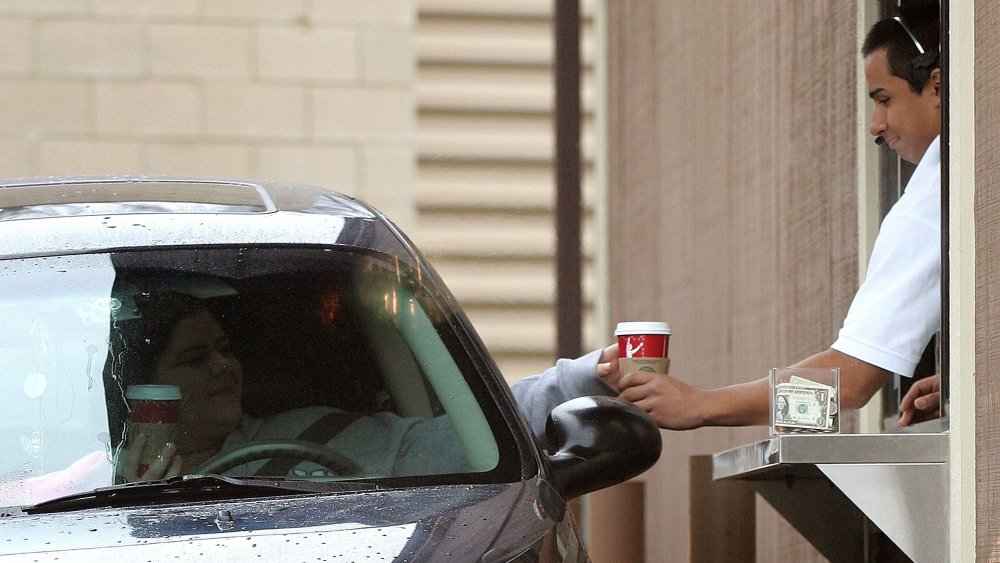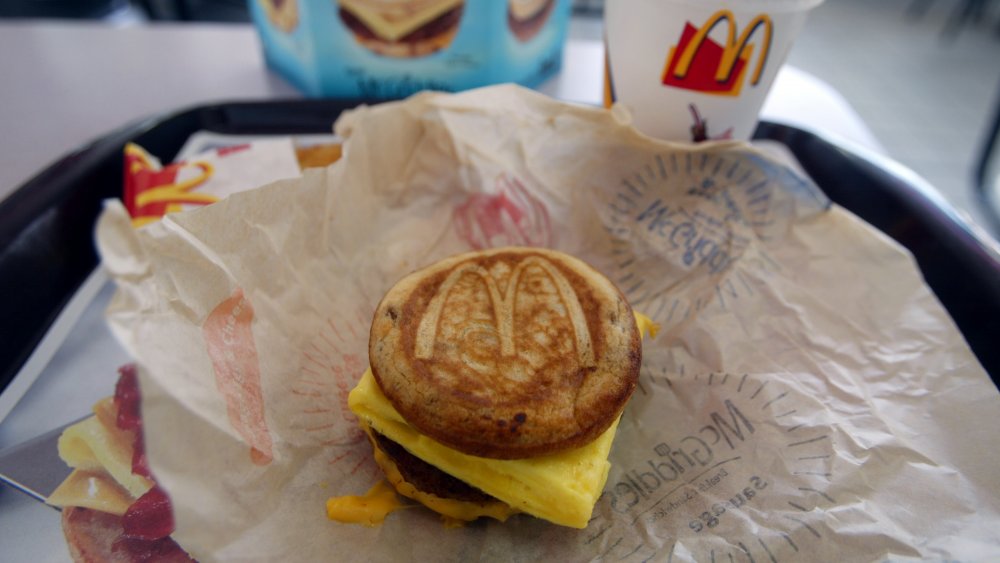How The Coronavirus Killed Fast Food Breakfast
At the start of 2020, it looked like fast-food breakfast was going to be the next big thing — or rather, even bigger thing. Wendy's, a chain that had been failing to compete in the morning meal market for decades, was finally set to roll out its breakfast menu nationwide. Meanwhile, McDonald's finally entered the great Chicken Sandwich Wars (remember that little bit of 2019 trivia?) with two brand-new breakfast items, the Chick-fil-A-ish McChicken Biscuit and the underrated-but-yummy Chicken McGriddle. Ahh, those were the days, back in the early part of this year when it seemed like we'd all be able to bounce out of bed, swing through the drive-thru, and start our day in a tasty (if not necessarily healthy) way.
Well, needless to say, halfway through this year, it seems like nothing's really turned out quite the way any of us were expecting. One of the many casualties of the pandemic-stricken restaurant industry has been the fast-food breakfast. No, these haven't all gone away, but they are definitely on the decline. According to Fox Business, restaurant chain breakfast sales, which had nearly quadrupled over the previous five years, had declined by nearly 20 percent as of this past June.
Why fast food breakfast sales are slumping
Part of the downturn in the fast-food breakfast market may have been due to limited offerings as chains like McDonald's began cutting back their menus in response to stressors like a reduced workforce and possible kinks in the supply chain. In fact, the Golden Arches' All-Day Breakfast, introduced in 2015, was an early casualty. While the ADB's absence was originally meant to be temporary, it's unlikely we'll see it return any time soon.
It wasn't so much the lack of choice that really killed off breakfast sales, though, but the change in commuting patterns. After all, if you're working from home, there's a lot less incentive to leave the house at 7 a.m. Business Insider reported that not only Mickey D's but also Panera Bread, Starbucks, and Dunkin' have seen a huge dip in early morning sales. The two latter chains say their sales have switched to midday/early afternoon instead — i.e., about the time home-bound workers start getting bored and feeling the need for a brief change of scene.
So what does it all mean? Will stores vow, as McDonald's has, a renewed dedication toward going after the breakfast market with newer, more tempting breakfast items? Or will they try to focus more on selling afternoon snacks, as Starbucks has done? We don't know yet, but stay tuned — maybe fast-food brunch is about to become a thing!

